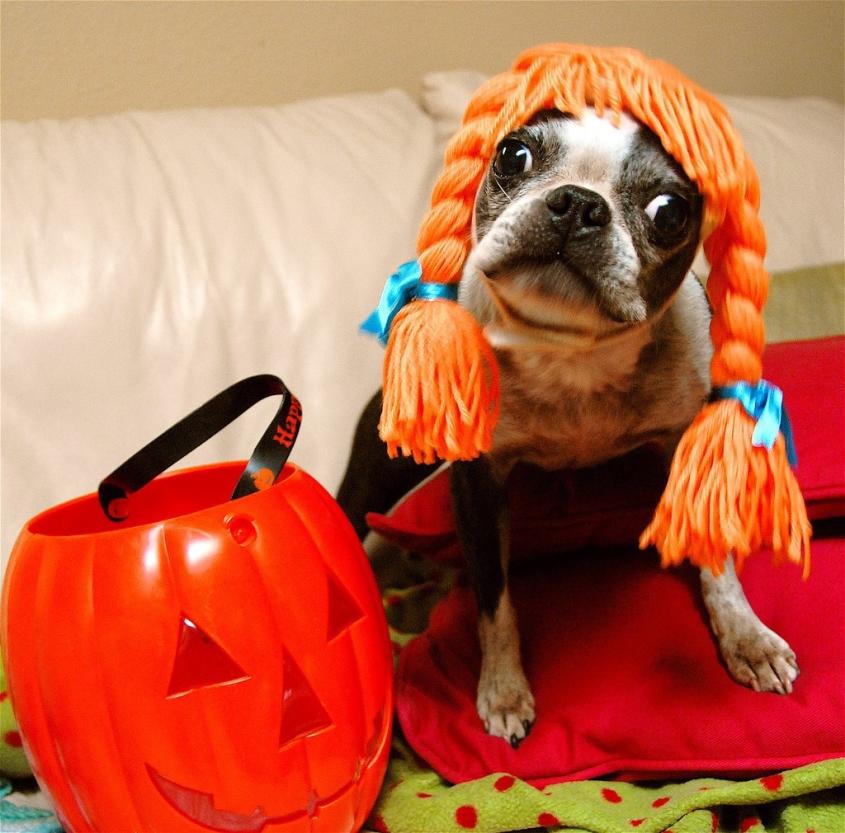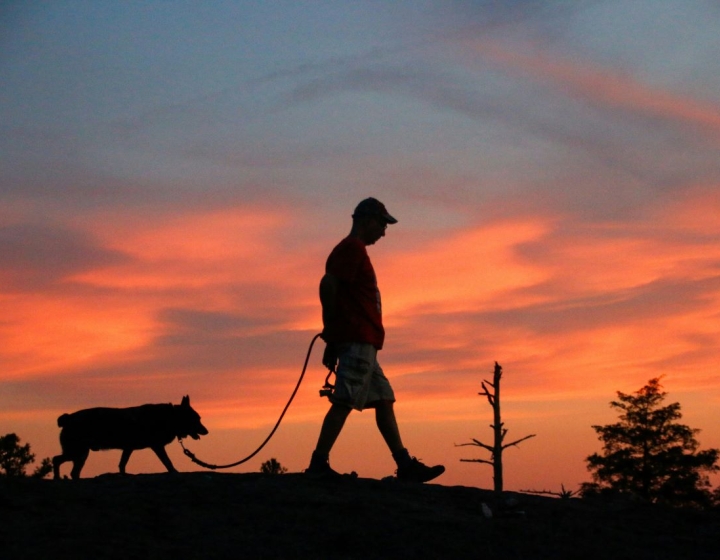Kornreich, Collins, share 'boos' and don'ts for Halloween pet safety
Halloween is a festive time for many, but the season of tricks and treats may spook your pets. Dr. Bruce Kornreich, associate director of the Cornell Feline Health Center and veterinary cardiologist, and Dr. Brian Collins, head of the Community Service Practice at Cornell University’s Hospital for Animals, offered some tips and tricks to help your pet enjoy Halloween.
“To keep pets safe during the Halloween season, make sure to keep all candies and treats out of the reach of pets, keep lit candles and electric wires in places where they cannot burn pets or be chewed on, and avoid leaving pets – especially black cats – outside unattended on Halloween and for several days before and after," Kornreich says.
On the big day, “Trick-or-treaters can be scary to pets, and pets can get outside when you open the door to greet them, so it would be best to confine your pets to a safe place in your house that does not allow access to the door on Halloween night," he adds.
“Speaking of costumes, they may be cute on your pet, but can be uncomfortable and scary to the pet, "Kornreich says, "so make sure that if you are going to dress your pet up, that the costume does not restrict movement or breathing and that it does not cause undue distress to the wearer.”
Dr. Collins followed up with these key tips on keeping pets safe on the day of spooky celebration:
Candy – “Although dogs would love to enjoy some of the Halloween candy that’s available this time of year, some candy might cause varying degrees of stomach and intestinal upset, and others like chocolate can actually be life-threatening depending on the type and quantity ingested," Collins says. "Remind children to keep candy out of reach of the family dog."
Halloween visitors – Like Kornreich, Collins cautions owners to keep a close eye on their pets during the peak hours of trick-or-treating. “Cats and dogs might escape through the front door and may be stressed or excited with all the commotion of the doorbell and excited young guests in strange costumes," he explains. "Consider keeping animals on leashes or confined to safe areas of the home when there will be lots of noise and activity.
Decorations – “Consider if your Halloween decorations might be too irresistible for kittens and puppies to climb on and eat," says Collins. "Keep them out of reach, considering that kittens and adult cats can be good climbers! Candles, sometimes inside jack-o-lanterns, can be knocked over and be a burn hazard.”
For interviews contact:
Melissa Osgood
office: 607-255-9451
mmo59@cornell.edu






